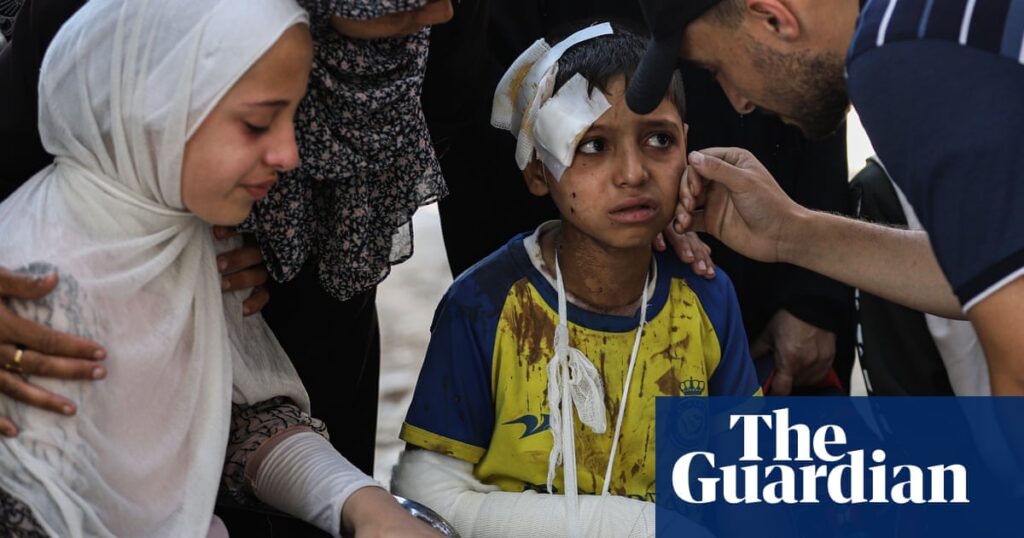
The recent escalation of violence in Gaza has drawn international attention as the region faces a dire humanitarian crisis. Since the breakdown of a ceasefire in March, Israeli military actions have intensified, leading to significant casualties and widespread devastation. The situation deteriorated further on June 13, when Israel launched a war against Iran, exacerbating the conflict in Gaza.
As the violence continues, the humanitarian situation in Gaza has reached a critical point. A blockade that lasted 11 weeks severely restricted aid, and although some assistance was allowed from late May, military operations have only intensified. The Gaza Humanitarian Foundation (GHF), backed by Israel and the US, has attempted to provide aid, but its efforts have been met with violence and chaos.
Humanitarian Crisis Deepens
On June 14, the second day of the Israel-Iran conflict, at least 20 Palestinians were killed in Israeli airstrikes in Gaza, with an additional 11 fatalities near GHF food distribution points. Witnesses reported that Israeli forces fired on crowds seeking food, while the military claimed it was targeting suspects approaching their positions. Footage from Gaza City showed desperate civilians pleading for food at distribution sites.
The following days saw a continuation of this tragic pattern. On June 16, Israeli troops opened fire on crowds near Rafah, killing 37 people and injuring hundreds more. Hospitals like Nasser and a Red Cross field facility were overwhelmed with casualties, marking one of the highest single-day mass casualty incidents to date.
Mounting Casualties Amidst Aid Shortages
June 17 marked the bloodiest day in weeks, with at least 59 Palestinians killed as Israeli forces fired on a crowd near UN aid trucks in Khan Younis. The attack led to a temporary suspension of aid convoys, worsening the already acute food shortage. An Israeli military spokesperson stated that troops adhered to international law, taking precautions to minimize civilian harm.
The violence continued on June 18, with Israeli troops firing on crowds attempting to access aid, resulting in 11 deaths. Airstrikes claimed another 24 lives, including that of a nine-year-old boy in the Bureij refugee camp. The dire humanitarian situation was further compounded by a lack of fuel, clean water, and medical supplies.
By the Numbers: An average of 23 UN trucks entered Gaza daily, but the UN estimates 500 are needed to meet the territory’s needs.
Displacement and Continued Violence
On June 20, new displacement orders from the Israeli military forced thousands to flee eastern Gaza City. At least 24 people were killed by Israeli fire while waiting for aid. Marwan Abu Nasser, director of al-Awda hospital, described the severe injuries treated, many involving women and children.
June 21 saw the retrieval of three Israeli hostages’ bodies from Gaza, victims of a Hamas raid. The incident underscored the complex and tragic nature of the conflict, with many hostages still unaccounted for.
International Response and Future Implications
As the conflict continues, the international community faces challenges in addressing the humanitarian needs of Gaza. Israeli authorities reported facilitating the entry of 430 trucks of aid over a week, but this falls short of the required amount. Displacement orders now cover over 80% of Gaza, with Israeli troops controlling significant portions of the territory.
On June 24, further violence erupted in Rafah, where 25 Palestinians were killed while seeking aid. The incident highlights the ongoing struggle for survival in Gaza, where aid distribution is fraught with danger.
Expert Opinion: “The situation in Gaza is a humanitarian catastrophe,” said a UN official. “Immediate international intervention is necessary to prevent further loss of life.”
The conflict in Gaza continues to unfold with devastating consequences for its residents. As international attention remains focused on the region, the need for a sustainable resolution becomes ever more urgent. The coming weeks will be critical in determining the future of this beleaguered territory and its people.






